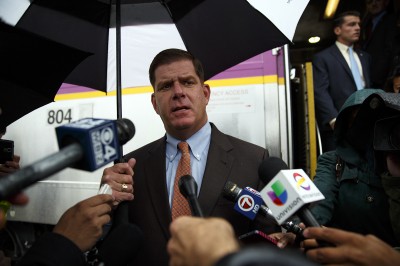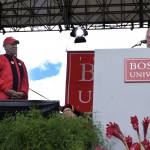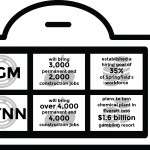
Boston will join the 100 Resilient Cities Network (100RC), a project of the Rockefeller Foundation that supplies cities with resources designed to combat contemporary challenges, Boston Mayor Martin Walsh announced Wednesday.
Boston was selected along with 35 other cities around the world to join the network, which provides tools, funding and technical expertise, among other forms of assistance, according to a Wednesday press release from the mayor’s office.
“The long-term impacts of the busing era are still felt in Boston today, and we know that we still see segregation in our neighborhoods and gaps in social outcomes for people of color in areas such as education, public health and economy security,” Walsh said in the release. “We saw an opportunity here, to take an alternative approach to what resilience means ― it’s not just environmental, it can also be social. I want to thank the Rockefeller Foundation and the judges for selecting Boston to join the Resilient Cities Network.”
Ryan Whalen, director for initiatives and strategy at the Rockefeller Foundation, said he was impressed by Boston’s application, which was up against more than 330 other cities worldwide.
“Boston’s application stood out,” he said in the release. “The selection committee was struck by the range of challenges that the city continues to face, and the dialogue that the mayor wants to open up about Boston’s segregated past.”
The 100 Resilient Cities grant is dedicated to helping cities around the world become more resilient to the physical, social and economic challenges that are increasingly becoming part of the urban experience, said Daniel Homsey, director of neighborhood resilience for the City and County of San Francisco, another city participating in the program.
“It’s about climate change, it’s about heat waves, but it also should be about things that people take on every day in the real world, economic downturns, poverty [and] violence,” Homsey said. “These are things that have just as much impact on their lives as a large earthquake.”
He said the network offers support for participating cities in four ways.
“Our program will provide the resources necessary to develop a road map to resilience … [through] financial guidance with the help of a chief resilience officer in each city, expert support, access to service providers and a membership into a global network of cities who can learn and help each other,” Homsey said.
The program will not only help cities tackle larger disturbances such as natural disasters, but will also aid cities in addressing issues that occur on a day-to-day basis, he said.
“These include high unemployment, over taxation, inefficient public transportation, endemic violence and chronic shortages of food or water,” Homsey said.
The momentum from last year’s inaugural 100RC challenge made this year’s challenge highly competitive, which spanned over 90 countries. Boston was chosen on the basis of willingness, ability and need to become resilient in the face of future challenges, according to the release.
Other cities in the United States selected for the project this year include Chicago, Dallas, Pittsburgh, St. Louis and Tulsa, Texas. International cities include London, Paris, Sydney, Athens, Accra, Ghana and Chennai, India, according to the release.
“The first 30 cities have been named,” said Andrew Salkin, 100RC chief operating officer in a statement. “Since then we have been working with points of contact to begin to implement the 100 resilient cities program. We need to address the shocks and stresses that hinder or threaten our cities.”
Several residents said they could still feel the effect of the busing era, which segregated bus lines and routes by race, and this project could be helpful in terms of moving forward from desegregation in Boston.
“My parents were victims of the gentrification that took place in Boston,” said Terry Courtney, 62, of South Boston. “They never got over their resentment and anger, and 100RC sounds as though it will help tackle this.”
Stephen Anthony, 45, of Dorchester, said the project can help fix many problems in the city, but societal changes can take generations to see any improvements.
“It seems as though this organization has a better chance of assisting cities with natural disasters and economic problems, rather than problems resulting from social structure,” he said.
Nuris Mejia, 75, of Jamaica Plain, said she understands racial segregation in Boston as a larger problem on a national and international level.
“Countless organizations have aimed to reduce racism and segregation through education, and if the motivation behind this project in Boston is the same, I question how they plan to do it,” she said. “I’d like to have more hope for the project, but frankly I just think these things have failed too many times in the past.”




